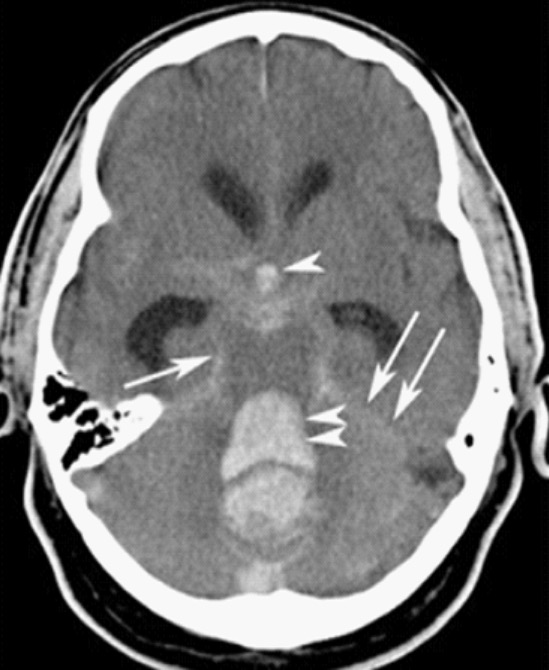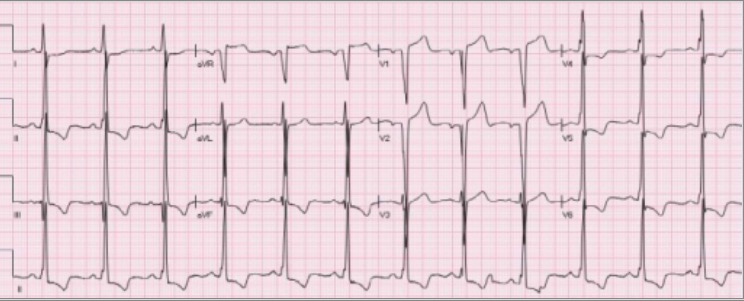Playlist
Show Playlist
Hide Playlist
Hypertension: Epidemiology, Classification and White Coat Hypertension
-
Slides Hypertension Mitchell.pdf
-
Reference List Pathology.pdf
-
Download Lecture Overview
00:00 So, who is affected? It's a remarkably common disease, 1 in 4 adults is affected by hypertension. As I talk about, the risk increases with age and this probably has a lot to do with increasing rigidity or stiffness of the aorta. 65% of men and 75% of women will have hypertension by the time they're 70 years of age. And although I'm not quite there, I have hypertension. Fortunately, I'm treated so I feel fine. The rates are highest in African Americans and lowest in Asian Americans. 00:34 So, other risk factors, things that you can't do anything about. Positive family history, hypertension as you can imagine because of the small genetic polymorphisms tends to occur and reoccur in families. So a positive family history, ethnicities or I said African Americans, are more prone to hypertension versus Asian Americans. And advancing age can't do a darn thing about any of those. Things that you can affect are obesity, diabetes, smoking, excessive alcohol or caffeine intake, high sodium intake, low potassium intake, physical inactivity, psychological stress. So all these things you can potentially impact. And in event that's not effective, then you can always take antihypertensive meds. So, what is hypertension. We've been talking about it. Now for about 30 minutes, what is it? Oh my gosh. Okay, so a normal blood pressure is considered to be a systolic blood pressure less than 120 mmHg and a diastolic blood pressure less than 80 mmHg. 01:44 Blood pressure is a continuous variable meaning that there is no absolute straight cut off for quotes normal-tension in quote otherwise known as normal blood pressure. 01:57 It's also important to note that blood pressure varies throughout the day and can be dramatically influenced by things like exercise or emotions or your hydration state or even just straining on the toilet. 02:10 For example many people will experience is so called white Coat syndrome. 02:14 With the anxiety of a doctor's visit on by itself can you listen to transient blood pressure rise. 02:21 Having said all that The american college of cardiology and american heart association generally define in quotes normal as a resting systolic blood pressure less than 120 mm of mercury any diastolic blood pressure less than 80 mm of mercury. With slightly higher systolic pressures between 120 to 180 mm of mercury a patient is considered borderline and can be said to have an elevated blood pressure. 02:48 When pressures exceed 130 mm or 80 mm diastolic the patient was formerly called hypertension. 02:57 Although even this categorisation can be further stratified by the relative pressure elevation. 03:03 In general if it's a consistent finding such hypertension will typically trigger therapeutic interventions to reduce long-term complications. 03:13 Interestingly and just as an aside European international group still consider patients to be hypertensive until they have systolic pressure is in excess of 140 mm of mercury or diastolic pressures over 90 mm of mercury. 03:27 Go figure. Importantly ones pressure consistently exceed 180 mm systolic or 420 mm of mercury diastolic Patients are they market increased risk for end organ damage including potentially lethal outcome such as stroke or aortic dissection. Such a situation termed hypertensive crisis typically mandates aggressive therapeutic intervention. 03:56 There is an entity probably related to stress and anxiety that is at a factitious form of hypertension so called white coat hypertension. It's seen in the clinical setting. So you go to see your doctor, they show up with a stethoscope and white coat and you get a little anxious and your blood pressure goes up. It's a normal response but it may be an artifactually high blood pressure caused by anxiety. So what do you do if you suspected that's the case? Well, you can do blood pressure measurements several minutes apart theoretically after the people have calm down, you can do it on several different visits. In fact, you should not make a diagnosis of hypertension on your first visit. You need to see it recurrently over time. 04:42 You can have ambulatory blood pressure monitoring or you can have the patient just periodically take the blood pressure themselves. The machines, the sphygmomanometers that can do this are reasonably cheap and most motivated patients will be only too happy to take their blood pressure at home.
About the Lecture
The lecture Hypertension: Epidemiology, Classification and White Coat Hypertension by Richard Mitchell, MD, PhD is from the course Hypertension.
Included Quiz Questions
Which of the following is a nonmodifiable risk factor of hypertension?
- Family history
- Obesity
- Smoking
- Diabetes
- High-sodium diet
Which of the following blood pressure readings would indicate the presence of hypertensive crisis?
- 180/120 mm Hg
- 120/80 mm Hg
- 90/60 mm Hg
- 175/100 mm Hg
- 160/115 mm Hg
Which statement about the epidemiology of hypertension is correct?
- The rate is highest in African Americans.
- One in six adults is affected.
- The rate is highest in Asian Americans.
- In people under 40 years of age, there is an equal incidence in both sexes.
- The risk decreases with age.
Customer reviews
5,0 of 5 stars
| 5 Stars |
|
5 |
| 4 Stars |
|
0 |
| 3 Stars |
|
0 |
| 2 Stars |
|
0 |
| 1 Star |
|
0 |





